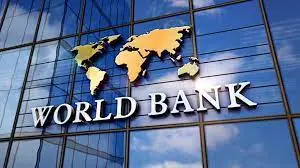World Bank trained Policy Analyst Blame States For Nigeria’s National Debt
A World Bank trained policy analyst and former Chief of Staff to Governor Godwin Obaseki of Edo State, Taiwo Akerele has said that most of the development challenges of the country lies with the state governments in Nigeria who he said were responsible for 35 percent of the current debt profile of Nigeria and also jointly 30 percent with the federal government.
A statement by Akerele who is a Technical Adviser to the Federal Government on post COVID-19 recovery economic programme in a statement titled “Stop the Ostrich game: Governors can change the narrative of development” and made available to journalists in Benin City also partly blamed the state government for the deficiencies in healthcare delivery and roads infrastructure on the state governments particularly those from opposition political parties.
He said “I have watched with amazement how state governors especially in the opposition have continuously heaped the blame of under development on the Federal government especially in the health and education sectors and in recent times the spiraling debt crisis in the country.”
“On the issue of national debt overhang, a governor in one of the south south states was recently quoted to have said that Nigeria’s debt is inching close to 60 Trillion Naira (about $134bn), and concluded that Nigeria has failed already. It is not my responsibility as a policy analyst to confirm or contradict the governors’ claims as the debt management office and the CBN have such responsibility vested in them, however, I had thought that the same governor will go ahead to state in equivocal terms his own state share of the debt overhang and what it has achieved with it for the purpose they were approved for, this was not to be as he again played the ostrich.
“The statistics from debt management office (DMO) shows very clearly that only 35% of the total federation debts belongs to the federal government, about 35% is owned by the 36 states while the outstanding debt of 30% is jointly owned especially loans that have to do with immunization and COVID-19 recovery and budget support instruments. If this is the case, on what grounds should a state governor (an opposition at that) squarely place the debt crisis on the foot of the federal government for growing the Nigerian population?”
Akerele said “I stand to be corrected; however, available data indicates that 70% of the health care needs of Nigerians fall between the purview of primary health care (LGA) and secondary health care (state) while the outstanding 30% is what is referred to the tertiary centers such as teaching, and specialist hospitals mostly funded by the federal government of Nigeria.”

